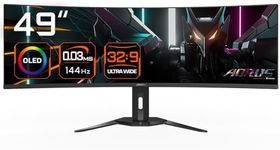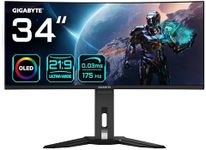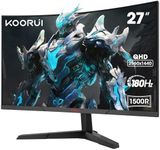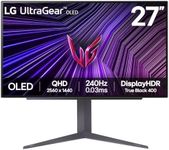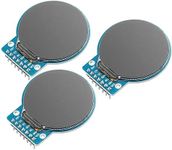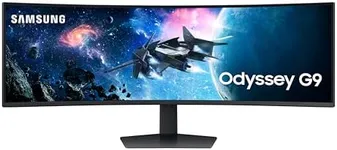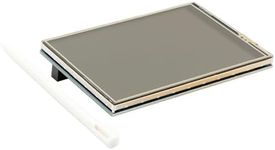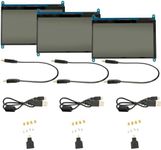Buying Guide for the Best Console Gaming Monitors
Choosing the right gaming monitor can significantly enhance your gaming experience. The right monitor will provide you with clear visuals, smooth gameplay, and an immersive experience. When selecting a gaming monitor, it's important to consider several key specifications that will impact your gaming performance and enjoyment. Understanding these specs will help you make an informed decision based on your gaming needs and preferences.ResolutionResolution refers to the number of pixels that make up the display on the monitor. Higher resolution means more pixels, which translates to sharper and more detailed images. Common resolutions include Full HD (1920x1080), Quad HD (2560x1440), and 4K (3840x2160). For console gaming, Full HD is often sufficient for casual gamers, while Quad HD and 4K are better for those who want more detailed visuals and have consoles that support these resolutions.
Refresh RateRefresh rate is the number of times the monitor updates with new information per second, measured in Hertz (Hz). A higher refresh rate results in smoother motion and less blur. Standard monitors have a refresh rate of 60Hz, but gaming monitors often offer 120Hz, 144Hz, or even higher. For fast-paced games, a higher refresh rate can provide a competitive edge and a more enjoyable experience. Choose a refresh rate that matches your gaming style and the capabilities of your console.
Response TimeResponse time is the time it takes for a pixel to change from one color to another, measured in milliseconds (ms). Lower response times reduce motion blur and ghosting, which is important for fast-paced games. Monitors with response times of 1ms to 5ms are ideal for gaming. If you play a lot of action or competitive games, aim for a lower response time to ensure smooth and clear visuals.
Panel TypePanel type affects the monitor's color accuracy, viewing angles, and response times. The most common types are TN (Twisted Nematic), IPS (In-Plane Switching), and VA (Vertical Alignment). TN panels have the fastest response times but poorer color accuracy and viewing angles. IPS panels offer better color accuracy and wider viewing angles but slightly slower response times. VA panels provide the best contrast ratios but can have slower response times. Choose a panel type based on your priorities, such as color quality, speed, or viewing angles.
Screen SizeScreen size is the diagonal measurement of the monitor's display area, usually measured in inches. Larger screens can provide a more immersive gaming experience, but they also require more space. Common sizes for gaming monitors range from 24 to 32 inches. Consider your gaming setup and how much space you have available. A larger screen can be more enjoyable for single-player and immersive games, while a smaller screen might be sufficient for competitive gaming.
HDR (High Dynamic Range)HDR enhances the contrast and color range of the monitor, providing more vibrant and realistic images. This feature is particularly beneficial for games with rich graphics and detailed environments. Not all monitors support HDR, and there are different levels of HDR quality. If you play visually stunning games and want the best possible image quality, look for a monitor with good HDR support.
ConnectivityConnectivity refers to the types and number of ports available on the monitor, such as HDMI, DisplayPort, and USB. Ensure the monitor has the necessary ports to connect to your console and any other devices you might use. HDMI 2.0 or higher is recommended for 4K gaming. Consider your current and future connectivity needs to ensure compatibility with your gaming setup.

